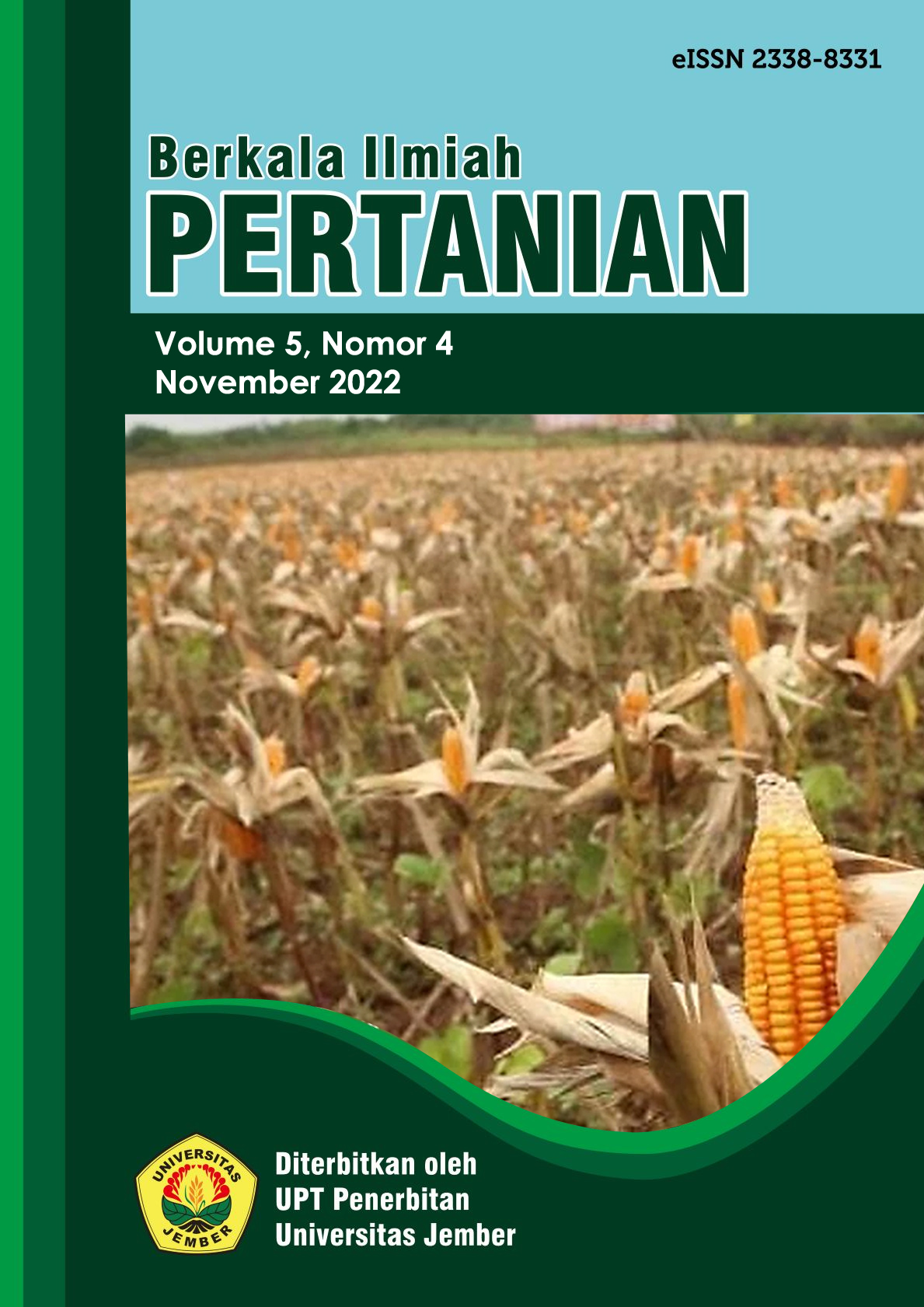Pengaruh Pemberian Pupuk Hayati dan Penambahan Limbah Baglog Jamur Terhadap Pertumbuhan Dan Hasil Tanaman Buncis (Phaseolus Vulgaris L)
The Effect of Biological Fertilizer and Addition of Mushroom Baglog Waste on Growth and Yield of Beans (Phaseolus vulgaris L).
Abstract
Beans ( Phaseolus vulgaris L ) is shrubs that are included in annual crops. Bean plants have a high nutritions. According to the Central Bereau of Statistic (2021), the production of beans in Indonesian has fluctuated in 2018 – 2021. Fluctuating bean production has an impact on consument needs. One of the obstacles to increasing bean production is the large use of inorganic fertilizers which can have negative impact. Efforts to increase the productivity of beans are one of them using biological fertilizers combined with mushroom baglog waste. The purpose of this study wasto determine the effect of the dose of biological fertilizer and the addition of mushroom baglog waste on the growth and yield of beans.The study used a factorial completely randomized design (CRD) with two factors. The first factor was the dose of biological fertilizer with treatment H0 : control; H1 : 15 ml/L water; H2 : 30 ml/L water. The second factor is the addition of baglogw aste with L0 : without mushroom baglog waste; L1 : 50 gram/polybag; L2 : 100 gram/polybag. The results showed 1) The interaction of biological fertilizers and baglog waste was only significantly different on the root lenght variable. 2) The best treatment was 30 ml/l water of biological fertilizers. 3) The best treatment was 100 grams of baglog.
Keywords: Beans, Biofertilizer, Mushroom baglog waste, Dose
Authors who publish with this journal agree to the following terms:
1.Authors retain copyright and grant the journal right of first publication with the work simultaneously licensed under a Creative Commons Attribution-NonCommercial 4.0 International License that allows others to share the work with an acknowledgement of the work's authorship and initial publication in this journal.
2.Authors are able to enter into separate, additional contractual arrangements for the non-exclusive distribution of the journal's published version of the work (e.g., post it to an institutional repository or publish it in a book), with an acknowledgement of its initial publication in this journal.
3.Authors are permitted and encouraged to post their work online (e.g., in institutional repositories or on their website) prior to and during the submission process, as it can lead to productive exchanges, as well as earlier and greater citation of published work (See The Effect of Open Access).

















